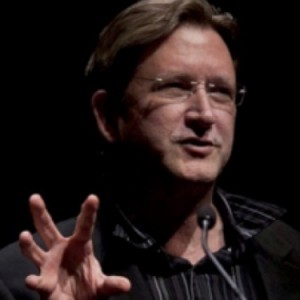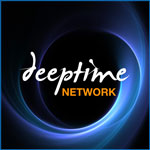Home › Forums › Deep Time Journey Forum › Quantum Consciousness: Is the Universe Intelligent?
- This topic has 4 replies, 3 voices, and was last updated 8 years, 11 months ago by
 Ed Lantz.
Ed Lantz.
-
AuthorPosts
-
-
April 28, 2015 at 11:53 am #4074
 Ed LantzMember
Ed LantzMemberThere are an increasing number of serious theories from biologists and physicists alike postulating that quantum information processes are fundamental to consciousness. Now in all fairness, quantum theories of consciousness are still somewhat speculative. There is limited research happening in this space and it is still considered “fringe” by some scientists, however that is changing. So with that qualification, here is my take on “quantum consciousness” and why it could revolutionize neuroscience and the way we see the evolution of life.
Of main importance is the utter weirdness of information on a quantum scale. Information contained within Hilbert Space – the “superposition of possible states within every atomic particle” – is vast. It can move about instantaneously (“teleport”) across any space to other entangled particles. Matter can also be entangled with “virtual particles” in the vacuum (“decoherence”).
Until recently we did not know of many macroscopic consequences to these microscopic informational properties of the universe. It was just thought to be an atomic-scale phenomenon and completely invisible on our macroscopic scale.
Experiments have now shown that macroscopic objects, gasses and light beams can be entangled:
http://www.quantumfoundations.org/macroscopic-entanglement-witnesses.html
http://www.sciencedaily.com/releases/2015/03/150327091012.htm
http://www.quantumlah.org/highlight/111202_diamonds
Even mechanical vibrating systems can informationally entangle:
http://www.nature.com/news/2009/090603/full/news.2009.540.html
Images can be coherently transmitted through entanglement;
http://www.nature.com/news/entangled-photons-make-a-picture-from-a-paradox-1.15781
And particles in the future can be entangled with particles in the past:
http://www.livescience.com/19975-spooky-quantum-entanglement.html
http://arxiv.org/abs/1209.4191
It has also been shown that entanglement allows the preparation and transfer of quantum states to perform quantum computing:
http://www.newyorker.com/magazine/2011/05/02/dream-machine
http://www.sciencedaily.com/releases/2015/04/150410165318.htm
It has recently been found that some biological systems do, in fact, exploit quantum information effects;
http://www.theguardian.com/science/2014/oct/26/youre-powered-by-quantum-mechanics-biology
These quantum informational properties of the universe are very real. But, the above cases notwithstanding, most consequences of these quantum informational properties do not come into play in the universe as we perceive it. Who cares if we can prove that a rock is entangled with another rock if there is no visible outcome that we can see?
Here’s the thing. We know that biological systems are rampant exploiters of chemistry and physics across all scales from the microscopic atomic and molecular scales to the macroscopic human form. And we also know that the human brain is the most powerful informational processor on the planet. If biological systems have found a way to exploit quantum information, the human brain would be the first logical place to look for it.
An increasing number of researchers – from medical doctors to physicists – are theorizing that consciousness may depend, in some fundamental way, on quantum information processes. That is to say that consciousness may not just be an emergent property of neural networks that process information according to known electro-chemical processes, but that consciousness, or some portion thereof, might rely on the very strange properties of quantum (or sub-quantum) information. For instance, Stuart Hameroff and Roger Penrose have developed the “Orch OR” theory of consciousness that hypothesizes quantum processes are at work in collections of microtubules within brain neurons:
http://www.sciencedirect.com/science/article/pii/S1571064513001188
Researchers theorize that consciousness is in fact a fundamental property of the universe – a kind of panpsychism: https://medium.com/the-physics-arxiv-blog/why-physicists-are-saying-consciousness-is-a-state-of-matter-like-a-solid-a-liquid-or-a-gas-5e7ed624986dhttp://www.biolbull.org/content/215/3/216.full?view=long&pmid=19098144
And because of this, it is thought possible that computers could achieve self-awareness: http://spectrum.ieee.org/biomedical/imaging/can-machines-be-conscioushttp://www.wired.com/2013/11/christof-koch-panpsychism-consciousness/all/
Why is this important? As David Deutsch, the father of quantum computing puts it:
“At the quantum level we have access not only to actual worlds but to other universes as well. What is happening in a quantum computation is that the algorithm runs over not only the states of the actual world but also over states from an infinite number of universes…”
He makes this statement based on the demonstrated ability of quantum computers, composed of a small number of individual atoms, to factorize very large numbers using Shor’s algorithm.
Deutsch explains:
“To those who still cling to a single universe world-view, I issue this challenge: explain how Shor’s algorithm works. I do not merely mean predict that it will work…I mean provide an explanation. When Shor’s algorithm has factorized a number using 10 to the 500th power or so times the computational resources that can be seen to be present [in the 250-atom/qubit computer], where was the number factorized? There are only about 10 to the 80th power number of atoms in the entire visible universe, an utterly minuscule number compared with 10 to the 500th power. So if the visible universe were the extent of physical reality, physical reality would not even remotely contain the resources required to factorize such a large number. Who did factorize it, then? How, and where, was the computation performed?” https://www.academia.edu/2461377/THE_ONTOLOGICAL_STATUS_OF_QUANTUM_INFORMATION
So, what if the brain could filter coherent (useful) information from the sea of seemingly random information that pervades the very fabric of the universe? And what if the computational capacity of the universe could be exploited by biological systems? Here are some possible consequences of these “what if” scenarios:
- The so-called binding problem in the brain could be quantum informational via entanglement (http://en.wikipedia.org/wiki/Binding_problem)
- Non-sensory cognitive processes in the brain (thoughts, imagination, dreams) could be the result – at least in part – of quantum informational processes.
- Near-death experiences could be the result of navigation within a quantum informational domain, explaining why the brain can continue to sense and operate while largely shut down (“Near-Death Experiences: Proof of Heaven: A Neurosurgeon’s Journey into the Afterlife” by Eben Alexander, M.D. – http://amzn.com/1451695195 , also: http://www.resuscitationjournal.com/article/S0300-9572(14)00739-4/abstracthttp://www.salon.com/2012/04/21/near_death_explained/ )
- Cases of anomalous information transfer (i.e. telepathy, reincarnation memories, remote viewing, etc.) might be explained (see “Psychic Phenomena: The Reality of ESP: A Physicist’s Proof of Psychic Abilities” by Russel Targ, PhD – http://amzn.com/0835608840, “The Conscious Universe: The Scientific Truth of Psychic Phenomena” by Dean Radin, PhD – http://amzn.com/0061778990, “Reincarnation: Return to Life: Extraordinary Cases of Children Who Remember Past Lives” by Jim B. Tucker, M.D. – http://amzn.com/1250005841)
- Even precognition could have an informational basis: http://dbem.ws/FF%20Meta-analysis%206.2.pdf
- The computational feats of savants would be a simple thing with access to quantum computational capacities: http://blogs.scientificamerican.com/guest-blog/2015/01/28/genetic-memory-how-we-know-things-we-never-learned/
- If some portion of our consciousness is quantum informational/computational in nature, this portion of our consciousness could theoretically exist outside of our physical bodies, perhaps surviving the death experience.
http://listverse.com/2014/02/15/10-reasons-there-might-be-an-afterlife/
Should these QC theories pan out, it’s not that consciousness would be “non-physical.” It’s more like consciousness could be “informational” in nature. Just as a computer (hardware/firmware) hosts computer applications (software), the human brain (hardware/firmware) might host consciousness applications (software).
The more spooky scenario would be the possibility that consciousness (bounded computational applications) might also operate on the quantum computational substrate of the universe itself (but without sensory/motor capacity to operate in the physical domain). Such a scenario would be akin to “transcendental consciousness.”
Is there evidence that the very fabric of the universe itself could harbor intelligence? While such a thing could be difficult to prove, there are telltale signs. As British astronomer Sir Fred Hoyle put it:
“Would you not say to yourself, “Some super-calculating intellect must have designed the properties of the carbon atom, otherwise the chance of my finding such an atom through the blind forces of nature would be utterly minuscule?” Of course you would. . . . A common sense interpretation of the facts suggests that a superintellect has monkeyed with physics, as well as with chemistry and biology, and that there are no blind forces worth speaking about in nature. The numbers one calculates from the facts seem to me so overwhelming as to put this conclusion almost beyond question.”
It could well be that life itself is an outflowing of this intelligence… Things that make you go “Hmmm…”
-
May 8, 2015 at 8:05 pm #4178
 Ed LantzMember
Ed LantzMemberOk, I know that quantum consciousness may be a heavy topic for some… It’s an important one, however, and one that I expect will feature prominently in the future. Ramifications of the QC hypotheses are vast, extending into evolution, neuroscience, cosmology and more.
I’m here to address questions or comments and am happy to help explain any difficult concepts. I studied quantum physics in grad school and more recently self-studied quantum information science and am actively developing a quantum consciousness hypothesis that is experimentally testable.
Don’t everyone speak at once! 🙂
-
May 9, 2015 at 8:40 pm #4180
Duane Elgin
ParticipantHi Ed,
Thanks for posting this rich array of resources! I am just beginning to explore them so I don’t have coherent questions — yet. I’m still at the “Hmmmmm…..” stage. Much of what you describe seems largely congruent with many of my own experiences in the research laboratory working with Russell Targ and Hal Puthoff in the early 1970s. Other aspects, such as computers achieving “self-awareness,” seem less plausible. I would enjoy a conversation some time.
-
May 12, 2015 at 12:34 pm #4196
 Karen ChaffeeParticipant
Karen ChaffeeParticipantEd, there is a lot to read here, and thank you for this wonderful list. I am planning to tackle some of it in the next few weeks. (I plan to start with the New Yorker article, because that magazine is usually right on my level.) I read slowly. It would probably work out better for me to do a lot of reading before I make some reply to your post, but I have enough familiarity with the topic already to add some thoughts. I am not a trained physicist, I am glad to chat with someone who is.
Where our interests intersect is in this statement from Sir Fred Hoyle
“As British astronomer Sir Fred Hoyle put it:
“Would you not say to yourself, “Some super-calculating intellect must have designed the properties of the carbon atom, otherwise the chance of my finding such an atom through the blind forces of nature would be utterly minuscule?” Of course you would. . . . A common sense interpretation of the facts suggests that a superintellect has monkeyed with physics, as well as with chemistry and biology, and that there are no blind forces worth speaking about in nature. The numbers one calculates from the facts seem to me so overwhelming as to put this conclusion almost beyond question.””
I had similar thoughts which inspired my ‘Carbon Mystery and Wonder’ Salon. (I wrote about it on this forum.) I wanted to list and explore all the many ‘coincidences’ and in fact, improbabilities, of the carbon atom. After a shaky start, the salon was a success, in that I learned to define my question better. The oddness, or improbability, of the carbon atom is encapsulated in the improbability of the electron’s properties, imo.
So, the salon took a 180 degree turn and we studied the electron and its quantum properties. In the course of our salon, we studied the concept of quantum entanglement of which you speak.
In our last meeting, we explored how the first moments of the universe created these properties (or visa versa???).
BTW, I read a lot of books to prepare for my salon, including Fabric of Reality, by David Deutsch. The book was really slow going for me. I remember finding it useful, and taking notes. I don’t have them, and will have to post them another time.
From my salon, I came away with the thought: there is ‘something’ going on. I probably don’t have a big enough brain to figure out what it is (hence my desire for a salon, to bring others together to help me!)
I do tend to discount the randomness theory, stated something like: If the universe in infinite in time and space, than every conceivable combination of forces and what-nots exists, so our universe is just the one-times-ten-to-the-quadrillion-quadrillion-quadrillion trial and voila, carbon happened.
That is just toooo nuts, but it is the apparently accepted explanation of science writer like Brian Greene and Lawrence M. Krauss, if I read them correctly.
I haven’t yet read the articles you’ve posted for us, but I wonder if what I called ‘something’ and what you called ‘consciousness’ are two sides of the same coin?
It didn’t occur to me to call my ‘something’ consciousness, and that might just reflect our different backgrounds. (I was prepared to entertain it was ‘God’, and to listen to those who are more spiritual than me.)
I haven’t read the articles you posted, and it might be premature, and I have plenty of holes in my thinking, but … I did quibble with the choice of the word ‘consciousness’ to describe this previously, and nothing has been written to change my mind. Calling it consciousness seems to me to reflect a lack of imagination. Also, it is too coincidental. (Why should this ‘something’ be consciousness, which coincidentally happens to be the property that we humans, off in our little corner of the universe, hold most dear?) Rebuttals to my thinking that you and Elizabet have already stated (although not in rebuttal to me):
- Consciousness is inherent on the universe, and that is why we have it. We had consciousness when we were mud, we had consciousness when we were single cell creatures, we have it now.
Unfortunately, these words don’t create any meaning in my mind, and I don’t mean that in a bad way; I’m just being honest. I am honestly trying to wrap my mind around it, because I think it is neat, while at the moment too obtuse to understand. That is why I am hoping Elisebet will list more tenets.
- Consciousness is inherent in the universe. We evolved to have consciousness because our creator, the universe, designed us to have the same property it has. (I think I understand that correctly.) That is identical to a similarly phrased sentiment in the bible that millions believe. This idea is MUCH easier for me to understand, and if true, would completely account for the coincidence. It is the sort of thing I would like to be true. However, I have no evidence for this at all.
- Experiential evidence that Ed has had. This hasn’t happened for me, but many people have told me about their experiences.
I have a lot more to say, but I will stop for now. I want to make one thing clear, though, and I am going to post this thought on the other forum, too. I don’t see coincidences in biology. Once you have carbon, or, in other words, once you have the electron and the hadrons such as proton, you have everything. Everything else just stems from this in an understandable way, thoughts I will try to post (on the other forum). I personally have no doubts about this.
-
May 14, 2015 at 8:00 pm #4211
 Ed LantzMember
Ed LantzMember<p>Hi Duane,</p><p><br /> <br /> Thanks for the kind words. Yes, it can be a lot to take in! It would be great to chat sometime. I’m based in downtown LA. – E</p>
-
-
AuthorPosts
- You must be logged in to reply to this topic.






